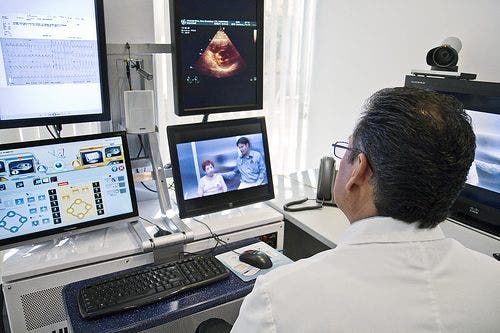Business Practices That Drive The Healthcare Industry

Health care is a business. Like any other business, the healthcare industry stands to benefit from practices that drive innovation and growth. Healthcare providers offer patients a unique service, but that fact alone does not guarantee their success. The service must reflect a solid understanding of how to best interact with consumers and meet their needs.
Focusing on Patient Retention
We live in an age of instant information. The Internet is brimming over with free information relating to health and wellness, and you can bet your patients are using it. As they gain more knowledge and interact with other patients, their needs begin to change. What was once only available to healthcare professionals is now easily viewable online at no cost to the patient.
That's why an exceptional patient-retention strategy is so important. More patients are making decisions about their health care thanks to the Internet without having to rely on visiting a new physician. Health businesses that know how to hold on to existing customers spend little on acquisition costs, and they enjoy the possibility of referrals.
Improving Efficiency Through Technology
Technology is constantly improving the healthcare industry, streamlining it in much the same way it streamlines countless other businesses.
Smartphones and other mobile devices make staying connected while on the go incredibly easy, something that's invaluable to healthcare professionals. Doctors can access medical texts with the push of a button or interact with colleagues at a moment's notice. Additionally, digitizing patient records and importing them into electronic databases means more reliable, efficient patient care.
Analyzing Data
Just as retailers use Internet data to predict buying trends, healthcare professionals use data to predict medical trends. Patients often use a search engine to find out more about symptoms they're experiencing, which provides us with valuable information regarding emerging medical trends.
Through analyzing the data surrounding a simple Google search of "flu", for example, health providers can identify when and where a flu outbreak may occur. While retailers may use data to make design choices, health professionals are using it to react quickly to outbreaks
Using Social Media to Connect with Consumers
We already know that the Internet has changed the healthcare industry forever by making information freely available to patients, but it's also changed the way healthcare facilities interact with the public.
Like any business today, a strong online presence is almost necessary to remain successful. That's why many facilities are using social media to connect with their current patients and reach out to new ones. From outreach campaigns to simply making staff members available for online chats, hospitals and clinics everywhere are gaining ground with this trend.
It's imperative that healthcare professionals have an understanding of their field as it relates to business. Patients are more than just patients. They are also consumers, and they are expecting the health industry to grow and change along with the world they live in. These practices reflect the industry's drive towards innovation and a better customer experience for every patient.